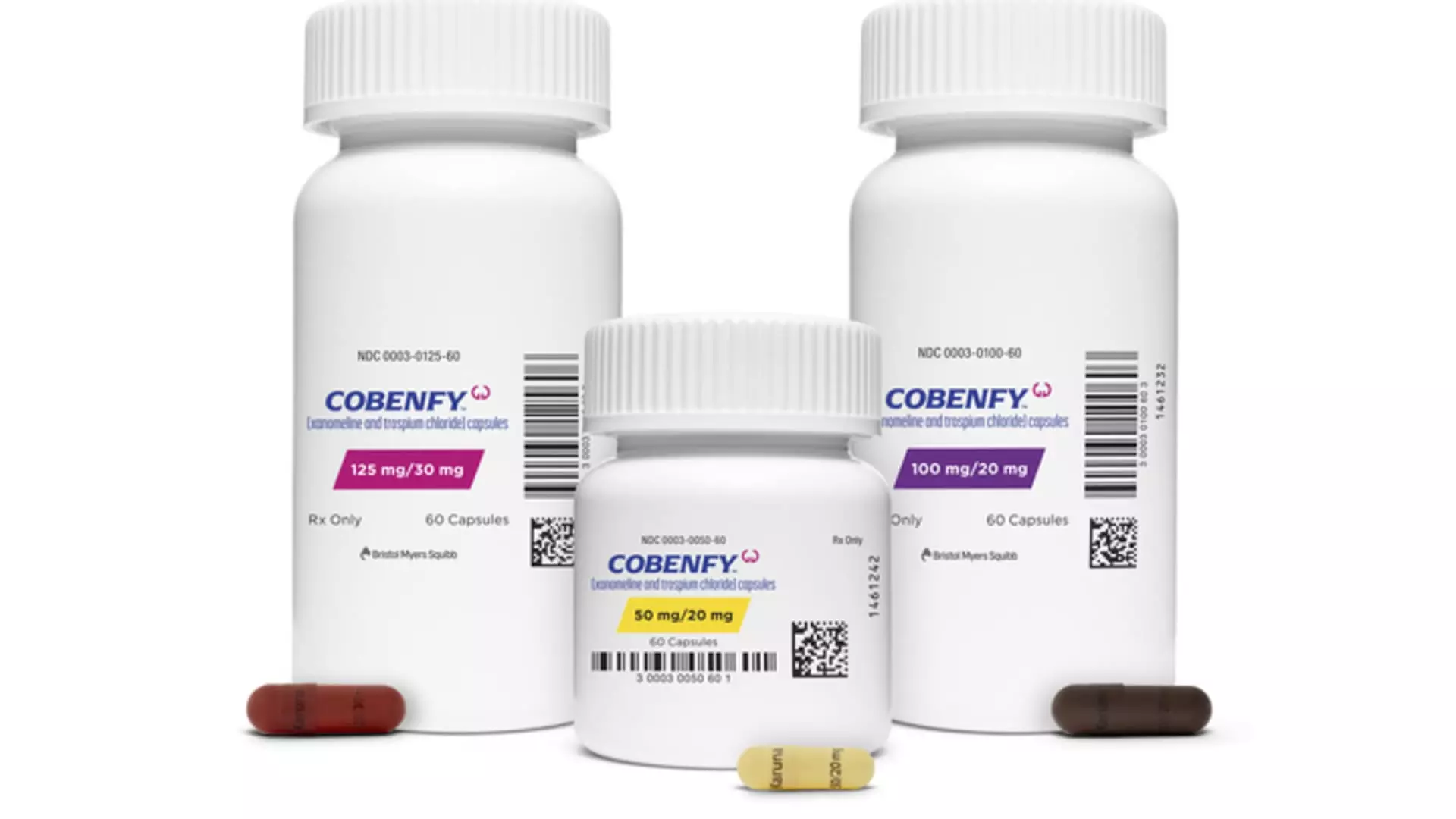Schizophrenia is a complex and chronic mental disorder that significantly disrupts an individual’s life. It can deeply affect the way a person thinks, feels, and behaves. Symptoms often include paranoia, delusions, hallucinations, and various emotional upheavals. These manifestations can hinder an individual’s ability to pursue daily activities, education, and employment, particularly affecting young adults who are often diagnosed between their late teens and early thirties. This challenging condition has left nearly three million adults in the United States battling its effects, highlighting a substantial demand for effective treatment solutions.
On a significant note for mental health advocacy, the FDA has approved Cobenfy, developed by Bristol Myers Squibb. This marks a historical milestone as it represents the first new class of treatment for schizophrenia in over seventy years. As a twice-daily oral medication expected to hit the market by late October 2023, Cobenfy provides hope for individuals seeking alternatives to current therapies. Many existing treatments are plagued by difficult side effects and low compliance rates, with 75% of patients ceasing medication due to these challenges within 18 months. Cobenfy could fill this critical gap in care and emerge as an essential component in the therapeutic arsenal for schizophrenia.
Bristol Myers Squibb acquired Karuna Therapeutics for $14 billion to propel the development of Cobenfy, showcasing the company’s commitment to advancing mental health treatments. According to Guggenheim analysts, Cobenfy is viewed as a possible “multi-billion dollar opportunity,” though the initial launch may be slow. The financial viability of Cobenfy is crucial as Bristol Myers contends with impending patent expirations on several top-selling products. The potential for Cobenfy to generate substantial sales, along with the necessity for effective treatments comprising the U.S. market’s nearly 3 million patients, makes it a pivotal product for the company.
The financial implications of Cobenfy raise important questions. Priced at $1,850 per month, or $22,500 annually, the drug’s cost aligns with other branded treatments for schizophrenia. Furthermore, awareness of insurance options is crucial, as around 80% of patients are covered by government healthcare. Bristol Myers Squibb has plans to implement programs aimed at making Cobenfy more accessible, though the extent of assistance for uninsured patients remains uncertain. The introduction of such a high-priced medication into a market with numerous generic alternatives—some of which are significantly cheaper—poses a challenge. For instance, patients can obtain generic antipsychotics like Abilify at extremely low costs, hence the competitive landscape will significant impact the uptake of Cobenfy.
Diverging from traditional antipsychotics that typically block dopamine receptors in the brain, Cobenfy operates through a novel mechanism. It combines xanomeline, which stimulates muscarinic receptors to modulate dopamine activity without the adverse effects commonly seen with conventional treatments, and trospium, designed to mitigate gastrointestinal side effects associated with xanomeline. This dual action may provide patients with a ground-breaking treatment option that effectively addresses their symptoms while minimizing severe side effects. More than a third of schizophrenia patients exhibit resistance to standard treatments, underscoring the need for innovative solutions such as Cobenfy.
Healthcare professionals express optimism about Cobenfy’s potential to transform treatment paradigms. As physicians grow familiar with this new medication, there is a belief that it could become the standard in schizophrenia management. While the initial patient population may include those who have exhausted other treatment options, the broader implications of Cobenfy’s efficacy could lead to a reevaluation of therapeutic strategies in mental health.
Nevertheless, caution is warranted. Industry experts advocate for careful observation post-launch to ensure that the medication is utilized appropriately, particularly given its cost. With the approval of Cobenfy, there is a twofold opportunity: to address a critical treatment gap in mental health care and to foster meaningful dialogue around the management of schizophrenia and its stigma. Fingerprints of collaboration between pharmaceutical developers, healthcare providers, and patient advocacy groups will play a significant role in shaping the trajectory of this groundbreaking new treatment.

